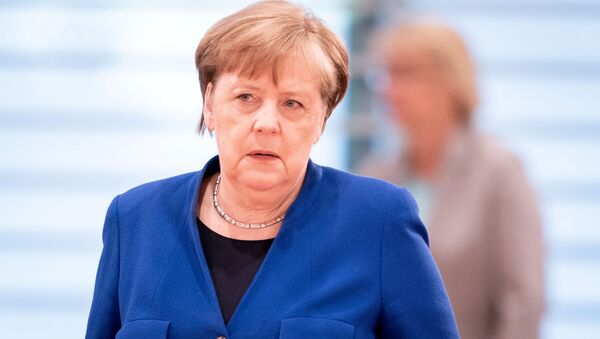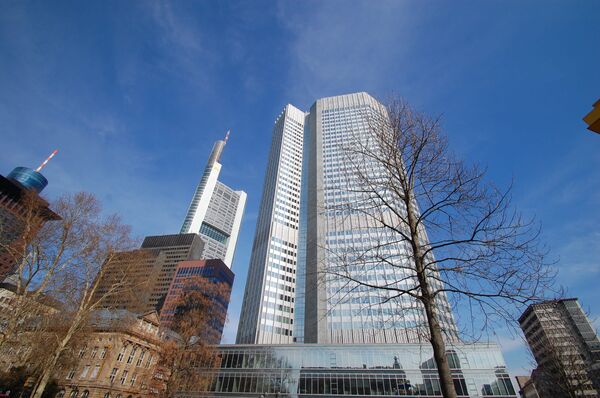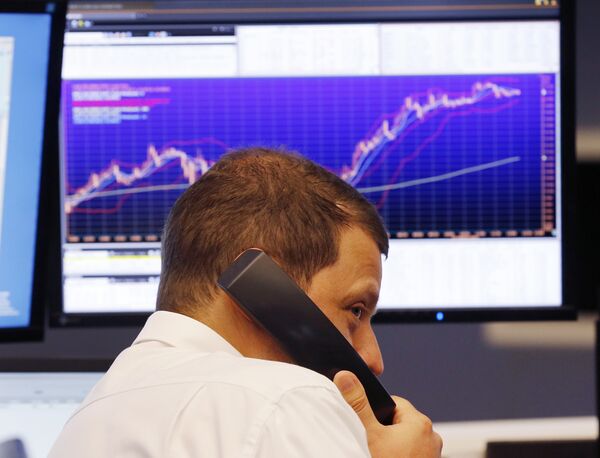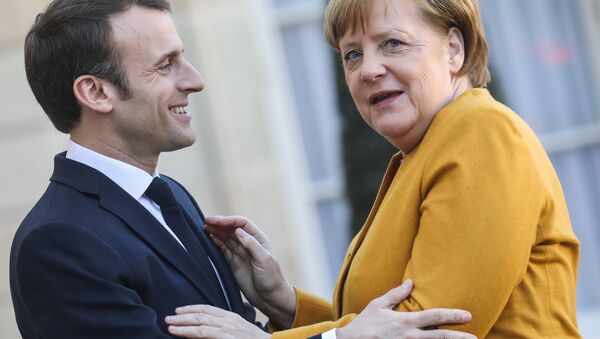Consistent with a broader push by European institutions to co-ordinate financial recovery measures for the EU economy in the wake of the COVID-19 pandemic, Berlin’s recently unveiled stimulus package has been hailed as paving the way for the region’s main actors, France and Germany, to bury their differences and hammer out an effective joint coronavirus response, writes The Guardian.
The German ministry of finance earlier unveiled a €130bln, (£116.4bn) package of tax and spending measures aimed at boosting the country’s economic recovery from the coronavirus crisis.
The investment programme of Chancellor Angela Merkel’s government, announced on 4 June, is reportedly equivalent of 4 percent of national income, offering over 50 initiatives to boost economic growth across the country.

Angela Merkel hailed the deal, saying society was facing a “profound upheaval” due to the current situation, and “we couldn’t just introduce a traditional stimulus package”.
“It also had to be done with an eye to the future, so that is what we especially emphasized,” said Merkel.
The recovery package comes after the government spent almost 30 percent of GDP to prop up struggling businesses and safeguard jobs.
Industry insiders were cited by Der Spiegel magazine as touting the package a “paradigm change”, with both Germany’s Green party and Merkel’s junior coalition partner, the Social Democratic Party (SPD), welcoming the developments as a victory.
€500bln Recovery
Earlier, German chancellor Angela Merkel put aside her differences with French President Emmanuel Macron to jointly propose the European Commission, the executive arm of the European Union (EU), set up a recovery fund worth €500bln ($545bln; £448bln) to help EU economies struggling with the impact of the COVID-19 pandemic.
A clear step forward in Macron Merkel initiative
— Luis Garicano (@lugaricano) May 18, 2020
- 500 bn fund
- Borrowed by the Commission
- Not in loans, but direct spending (!)
- Will go in the EU budget 21-27, thus under democratic European control.
Change from loans and grants and to 500bn in expenditure is v. good news
Previously, Merkel had opposed a proposal by French President Emmanuel Macron for a Recovery Fund that would mutualise debt to fund other member states for the first time.
Reached during virtual talks on 18 May, the deal suggests that 27 EU members jointly borrow on financial markets to offer grants rather than loans to hardest-hit sectors and regions in the European Union. The suggested sum was to be in addition to the €1 trillion EU budget for 2021-2027.
The move was hailed by Emmanuel Macron, known to be an advocate of greater financial integration, as offsetting the bloc’s much-deplored failure to show sufficient solidarity at an earlier stage in the pandemic.
“What is sure is that this €500bn will not be repaid by the beneficiaries … We are proposing to do real transfers [of money] ... that’s a major step,” said Macron.
Prior to the deal, EU leaders had struggled for weeks over measures to support member-states hardest-hit by the fallout from the health crisis.
France, Italy and Spain had shown more inclination to resort to grants, while Germany and the Netherlands opted for loans to stimulate economic recovery.
European Central Bank
The European Central Bank fed into efforts to aid post-pandemic recovery, boosting its emergency support programme by €600 billion to €1.35 trillion.

The ECB stimulus, announced on 4 June, is aimed at retaining lower longer-term interest rates, and keeping credit flowing to borrowers amid global economic uncertainty.
Similar moves have been taken by the US Federal Reserve, the Bank of England, the Bank of Japan and other central banks.
Stock Market Gains
News of the combined funding packages triggered gains on stock markets, as analysts predicted the financial markets to accelerate to pre-pandemic levels during the rest of June.

The German Dax was among several European stock markets to make impressive gains, rising by 3.4 percent last Friday, bringing the week’s increase to over 10 percent.


